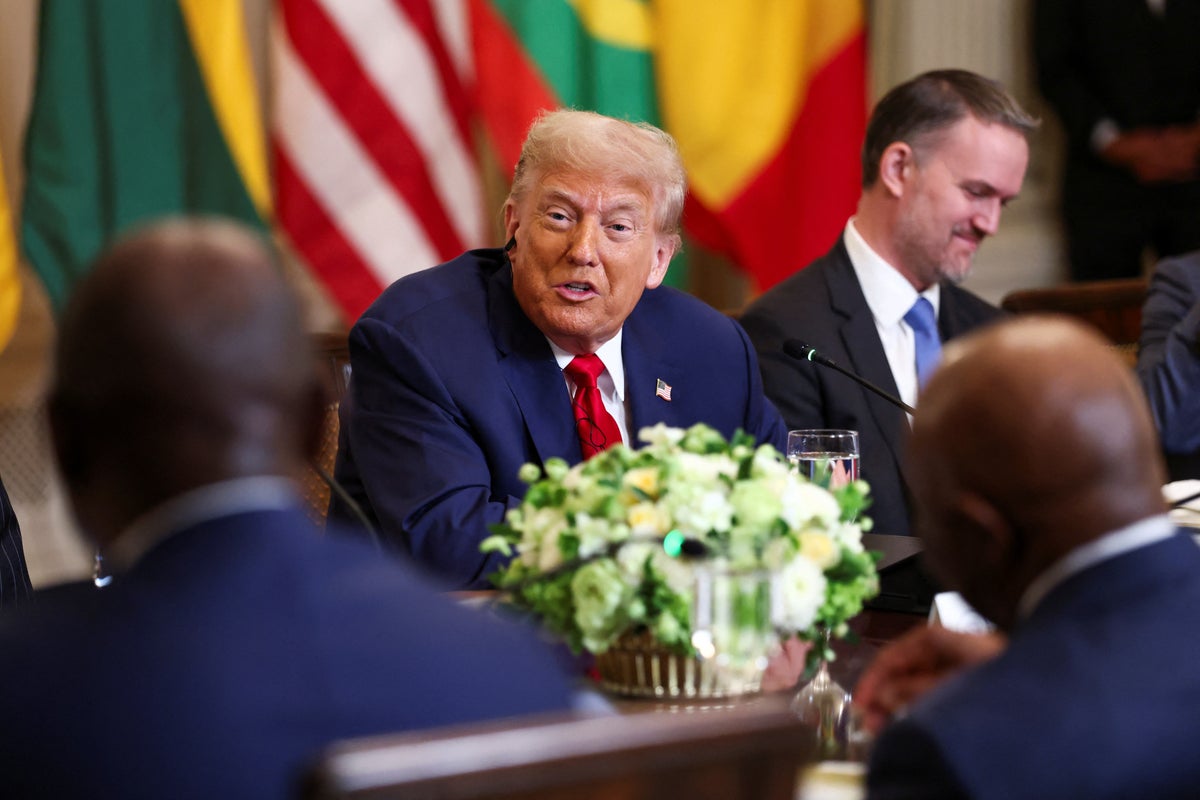Inside the Recent Controversy Surrounding U.S. Weapon Shipments to Ukraine
Days after announcing a reversal on the suspension of U.S. weapons shipments to Ukraine, President Donald Trump expressed confusion about the order that had halted deliveries to this vital ally. During a recent luncheon at the White House, attended by several African leaders, Trump was asked whether he had uncovered the identity of those responsible for the controversial decision. His reply, “I haven’t thought about it,” suggests a lack of clarity on a pressing international matter.
The Order to Suspend Shipments
The suspension of weapon deliveries, which included crucial munitions intended to bolster Ukraine’s defense against ongoing Russian aerial assaults, was reportedly approved by Secretary of Defense Pete Hegseth. This decision followed the recommendation of Elbridge Colby, the Undersecretary of Defense for Policy known for his isolationist views. The rationale cited for the halt was the dwindling U.S. stockpile, exacerbated by the diversion of significant amounts of air defense systems to Israel amidst its recent conflict with Iran.
Immediate Impacts on Ukraine
The impact of this order was profound, as it interrupted the flow of essential defense equipment needed by Ukraine to counteract attacks from Russian drones that had been targeting civilian areas relentlessly. The suspension led to alarm among lawmakers from both political parties, drawing criticism even from officials within the White House and State Department who were taken by surprise at the move.
On reversing the suspension, Trump emphasized the necessity for Ukraine to defend itself effectively. During a dinner meeting with Israeli Prime Minister Benjamin Netanyahu, he stated, “They have to be able to defend themselves.” His acknowledgment of Ukraine’s significant struggles further highlighted the urgency of resuming shipments of “defensive” arms.
Trump’s Criticism of Putin
In a noteworthy shift in tone, Trump offered critical remarks about Russian President Vladimir Putin. During a cabinet meeting, he stated he was “not happy” with Putin due to the relentless attacks on Ukraine, calling out the human cost of the conflict, including the reported loss of “7,000 soldiers a week.” By asserting that Putin was “killing a lot of people,” Trump underlined the severity of the conflict and questioned the rationale behind the ongoing aggression.
Praise for Ukrainian Bravery
Despite some of his supporters questioning the fairness of U.S. financial support for Ukraine’s defense endeavors, Trump acknowledged the bravery displayed by Ukrainian forces in their defense efforts. He noted that the United States had equipped Ukraine with state-of-the-art military equipment, enabling them to effectively combat the invasion. “The Ukrainians were brave,” he remarked, adding that it takes a significant level of courage to operate the advanced weaponry supplied to them.
The Complexity of U.S.-Russia Relations
Trump’s comments reveal a complexity in his views on U.S.-Russia relations. While historically maintaining a closer rapport with Putin than many other leaders, he expressed his frustration with the Russian leader’s behavior during the ongoing conflict. “It’s very nice all the time, but it turns out to be meaningless,” he remarked, emphasizing that Putin’s actions painted a picture of disregard for human rights and the welfare of the Ukrainian populace.
Moving Forward
The discussions surrounding the state of U.S. support for Ukraine and the ramifications of arms shipments will undoubtedly continue to evolve. As the situation develops, the political implications, both domestically and internationally, will shape the narrative around U.S. involvement in the ongoing conflict in Ukraine. Whether Trump’s administration can garner bipartisan support to sustain aid for Ukraine remains to be seen, especially given the complexities intertwined with U.S.-Russia relations and the broader implications for global stability.


